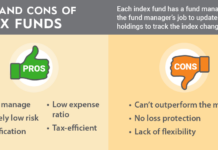Earn it and spend it because you only live once, this is the YOLO lifestyle.
FI seekers earn it then invest it building their way to financial freedom. This delays gratification, but gives greater freedom later on. Those who are successful in their FI journey will so win control over their time.
Those seeking FI/RE adopt a smart and frugal lifestyle; based on buying things which make a difference. This is the art of living simply.
The Early Retirement Quiz.
Define your Financially independent lifestyle: 5 points.
Seeking FI requires adopting a certain lifestyle. Each Fi seeker uses the same tools of frugality, and investing but implements them in different ways. Understanding what and how to implement these changes is a key to success because it allows you to measure your performance. In turn, this becomes a motivation and a nudging factor.
- Why do you become financially independent?
- How much are you currently worth?
- What is your average cash out?
- What is your average cash in?
- How much money do you need to become FI?
You get one point for your own clear answers to the above questions!
See Alo: Define Financial Independence
If you know where you are going (How much money do you need to become FI?) and know where you are (Net worth, Cash In and Cash out) then it is just a matter of birding the gap. Take your FI journey into Baby steps. A journey of 1000 steps starts from the first one.
The subgoals that move you closer to the FI goals:
- Save more than you spend
- Invest more than you spend
- Earn from passive income as much as your primary income
- Understand your retirement budget
- Have a clear RE date
Tip: The OODA loop can help you achieve FIRE.
Keep your Financial education up to date: 5 points.
Financial independence is about learning, discerning and applying financial lessons. The finance world is changing at a very fast rate. These changes bring both opportunities and risks.
Cryptocurrencies, peer to peer lending and crowdfunding are new opportunities which can shorten the FI Journey. Using incorrectly they could also lengthen the FI journey. Beware of the scams out there.
Tip: On the top bar you can see several investment databases
Your score is a reflection on your current understanding of your current investments and potential ones including their risks.
Monitor and upgrade your Cash in: 10 points.
Your Cashin is they key variable to achieve FI. You cash in depends on a combination of a good primary income a number of side hustles and passive income sources.
If you are serious about FI you need to constantly be experimenting with systems to create passive income.
The first step is to turn time into money and then use that money to create more money.
Adapting your Cash in strategies sustainably is about finding the right opportunities given the time, money, skills and knowledge you have. Failure is part of learning, do not give up.
This is a combination of both monitoring and automating your current investments, for example, have the fees of a particular fund changed and finding out new investments and side hustles.
Some tips:
- Side hustles for millennials
- The correct way to start a business
- Ideas to earn extra income for families
You score is a reflection of how much time you commit your cash in goals over and above your standard working hours.
See Also: 6 steps to financial independence.
Monitor and reduce your Cash out: 15 points.
Cash out is something you have more control over cash in. It is easier to save then to earn money.
Consider:
- Do you have a personal and household budget?
- When creating this budget, have you considered needs and wants?
- Review and compare your actual spending vs your budget?
- Investigate each item you buy and see the impact.
Challenge yourself:
- Reduce Consumer debt by 10% a month and do not add anything
- Pay Mortgage x years early
- Slash grocery Bill by 30%
- Slah medical bill by 50%
See Also: Financial independence Milestones
More resources:
- Saving During the holidays
- Average Joe saving techniques (Page 25)
- 10 Ways to Effectively Save for the Future
Is your cash out under control, point in this section are awarded on.
- How much you reduce your monthly expenses month on month
The difference between your actual expenditures and your budget
Financial Backup plans: 5 points.
Financial independence can be safeguarded even if disaster strikes. Foresight into what are the most likely scenarios where your FI is threatened is an insurance to save all the hard work you have been putting into FI.
Short term
- 6-month reserve fund
- Cash of your home country and some in currencies of neighbouring countries
- Paper and electronic copies of your personal financial information such as:
- Safety deposit if necessary box for your valuables
- Bank contacts print screens of your investments
- Account numbers
- Debit and Credit Card copies
- Copy of your ID and passport
- Photos and inventory of your assets and valuables
Long-term
- Will your FI plan hold if you reach the age of a 100?
- What are the unforeseen expenses that have a chance of showing up later on in your life?
- What are the risks, to your cash-ins during early retirement?
- Under what conditions would your side hustles and passive income sources not support our early retirement lifestyle?
- Geographical diversification
- Assets outside of the financial system such as Agricultural and alternative investment
See Also: 6 steps to FI
More resources: Finance emergency kit
Early Retirement Quiz Score:
The score is a tool to help you adjust your strategy, it tells you where you have been but not where you are going! Share your score and let us know what is your strategy to change it for the better. If you are serious about your early retirement, you should simply work harder at it 🙂
Further reading: How to become rich?










